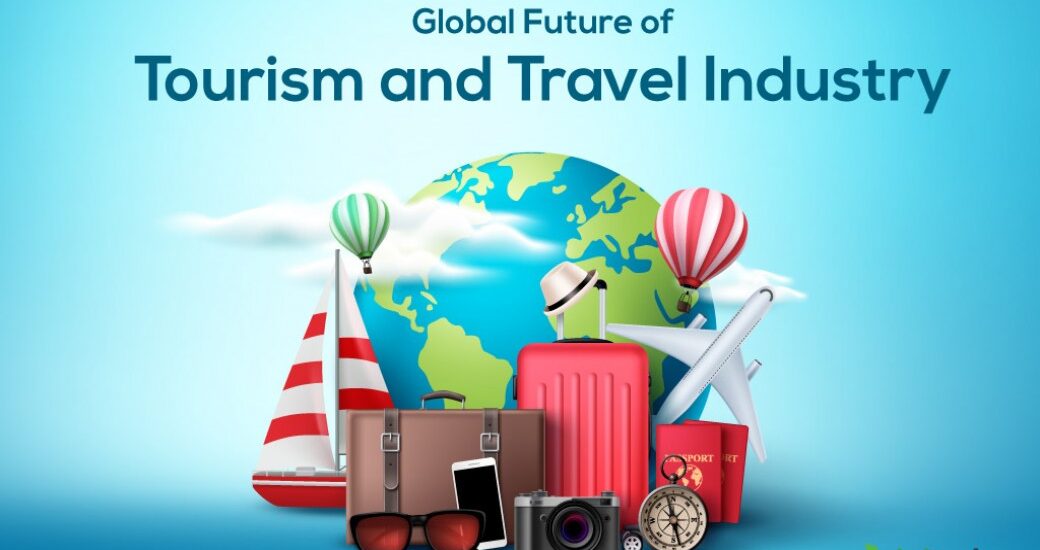The travel and tourism industry was among the hardest-hit sectors during the COVID-19 pandemic, as global lockdowns and travel restrictions grounded flights, closed borders, and halted tourism altogether. However, as the world begins to recover, the industry is witnessing a gradual but hopeful rebound. In this article, we explore the current state of tourism, the challenges it faces, and how it is adapting to a post-pandemic world.
A Strong Recovery in Sight
The travel and tourism industry is showing signs of a strong recovery. According to reports from international organizations like the World Travel and Tourism Council (WTTC), the global tourism sector could recover to pre-pandemic levels by the end of 2025. This recovery is fueled by increasing vaccine rates, the easing of travel restrictions, and rising consumer confidence. As people begin to feel more comfortable traveling again, bookings for international flights, cruises, and hotel accommodations have surged.
Tourism Statistics: According to the WTTC, the global tourism sector is expected to contribute over $8 trillion to the global economy by 2025, creating millions of jobs and boosting local economies.
Changing Travel Preferences: The Rise of Local and Sustainable Tourism
One of the significant changes in post-pandemic travel trends is the rise of local and sustainable tourism. With international travel restrictions still in place in some regions and the growing awareness of climate change, many travelers are opting for staycations, domestic tourism, and eco-friendly travel options. Destinations that offer outdoor activities, such as hiking, biking, and wildlife tourism, are seeing a surge in popularity as people seek safer, nature-based experiences.
Sustainable Tourism: The shift toward sustainability has encouraged more travelers to choose destinations and activities that minimize their environmental impact, like carbon-neutral tours and eco-friendly accommodations.
Challenges Facing the Tourism Sector
Despite the positive recovery trends, the tourism industry still faces several challenges. One of the most pressing issues is staff shortages, as many workers left the industry during the pandemic. This has led to delays in services, lack of trained staff in hotels, airlines, and travel agencies, and overall operational challenges. Additionally, the cost of travel is rising, and inflation in many parts of the world is affecting consumer spending.
Staff Shortages: The tourism industry is facing a shortage of qualified workers, which is impacting service delivery and operational efficiency in key sectors such as hospitality, airlines, and tour operators.
Technology’s Role in the New Travel Experience
Technology has played a crucial role in the recovery of the tourism industry. From contactless check-ins to virtual tours, technology has made travel safer and more convenient. Many hotels, airlines, and other service providers have implemented digital solutions such as mobile apps for booking, self-service kiosks, and enhanced cleaning protocols powered by AI. Furthermore, the rise of virtual and augmented reality is allowing travelers to explore destinations and experiences before they even step on a plane.
Virtual Tourism: Virtual and augmented reality are changing how travelers experience destinations, with some companies offering virtual travel experiences to distant locations that are still difficult to access.
The Road Ahead: Optimism and Challenges
The road ahead for the tourism industry appears to be filled with optimism. As global vaccination rates continue to rise and travel restrictions are lifted, tourism is poised to regain its position as one of the world’s largest industries. However, it is crucial for the sector to adapt to the evolving demands of consumers, ensure sustainability, and overcome operational challenges. The industry’s recovery will require continuous innovation and collaboration between governments, businesses, and consumers.
“Tourism will bounce back stronger, driven by new trends and a renewed appreciation for travel.” – Travel Industry Expert
In conclusion, the tourism industry is on its way to recovery, but there is still work to be done. By embracing new trends, adapting to consumer preferences, and overcoming operational hurdles, the tourism sector can rebuild itself stronger than ever. The future of travel is bright, and it’s an exciting time to witness the rebirth of global exploration.





